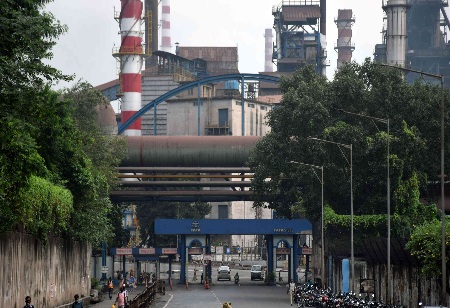Tata Steel has signed an agreement with Australian mining and metals company BHP to jointly study and explore low-carbon iron and steelmaking technology, the Indian steelmaker said in a statement.
Under the partnership, Tata Steel and BHP plan to reduce emission intensity through the use of biomass as a source of energy and the application of carbon capture and utilisation in steel production. The partnership aims to support India’s ambition to be carbon neutral by 2070. The technologies can potentially reduce the emission intensity of integrated steel mills by up to 30 percent. “These projects demonstrate how abatements applied to the blast furnace iron-making process, which contributes to more than 60 percent of India’s steel production, can materially reduce the carbon intensity of the existing capacity,” the company said in the statement.
Apart from this, Tata Steel and BHP will explore further collaborations, ecosystems and business opportunities in the steel value chain and research and renovation sectors in India and Australia.
Steel has undertaken various initiatives towards carbon neutrality. It has an agreement with Shell India Markets to evaluate and co-develop short- and long-term options to improve energy efficiency and optimise demand around carbon-intensive products and services.
Tata Steel and the Council of Scientific & Industrial Research are collaborating on carbon capture and utilisation, opening the doors for joint development of advanced technologies with 38 CSIR labs.
The Indian steel industry has reduced energy consumption and carbon emissions substantially by adopting appropriate technologies in modernisation and expansions projects.
The average CO2 emission intensity of the Indian steel industry has reduced from about 3.1 tonnes/tonne of crude steel (T/tcs) in 2005 to 2.6 T/tcs by 2020, as per a PIB report dated February 2, 2022.
What others are doing:
Jindal Steel and Power: JSPL has divested Jindal Power to reduce debt, but in the process this will reduce its carbon footprint by almost half. The company plans to reduce carbon emissions by almost 50 percent.
JSW Steel: The company has tied up with US-based Boston Consulting Group to meet its decarbonisation goals. It has an ambitious target of reducing carbon emission by 42 percent by 2029-30 versus base year 2005.
